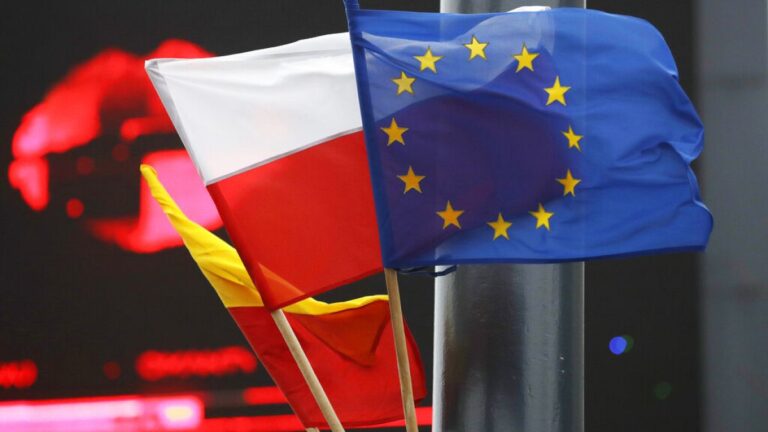An opening gala was held at the Warsaw National Theater to mark Poland’s assumption of the six-month Presidency of the Council of the European Union, which will begin on January 1, 2025.
Poland held a celebration event in Warsaw to mark its second Presidency of the Council of the European Union.
The country is tasked with guiding the work of the Council and representing all member states in negotiations with other EU institutions. The slot rotates between the EU’s 27 member states every six months, with Hungary ending its own controversial term in December.
During the gala, Polish and European leaders watched a show by composer Radzimir Dembski. Dembski wrote completely new works for the occasion and performed several works with the National Theater’s orchestra and choir.
The work, titled “Ukłon” (“Bow” in English), draws inspiration from Polish classical music, including Karol Szymanowski, Krzysztof Penderecki, Henryk Mikołaj Görecki, Wojciech Kirar, and Grazyna Bacewiczna. That’s what I got.
Among the first to take to the stage in Warsaw was Polish Prime Minister Donald Tusk.
“Everyone in Europe and everyone in this beautiful room knows exactly what we have been doing,” Tusk said in his opening remarks, “but what I want to say is: “The Polish presidency is meant to draw on our national wisdom, our national experience.”
“If Europe is powerless, Europe will not survive. Let us do everything so that Europe and Poland do not have to pay the highest price for freedom, strength and sovereignty. To make Europe strong again Let’s do everything we can,” Tusk said.
Poland, once known as a thorn in EU politics, is now thrust into the spotlight. In his speech, Prime Minister Tusk called Poland “the most pro-European country on the continent” and emphasized the close ties between European and Polish values.
Conspicuously absent from the inaugural celebration was European Commission President Ursula von der Leyen, whose office announced that she had contracted pneumonia before the ceremony. Polish President Andrzej Duda also did not attend.
Hungary’s ambassador to Poland had been disinvited from the ceremony following a diplomatic spat between the two countries in which fugitive Polish lawmaker Marcin Romanowski was granted asylum in Hungary.
Marked by the ongoing war in Ukraine and the crisis on the Polish-Belarusian border, the Polish presidency will focus on European security and defense.
“Poland is at the helm of the EU at the best possible time,” European Council President Antonio Costa said at the event. “The vitality of Poland’s democracy and the sense of nationality of its people will strengthen the European Union as a whole,” he said, while also emphasizing the importance of continued support for Ukraine.


